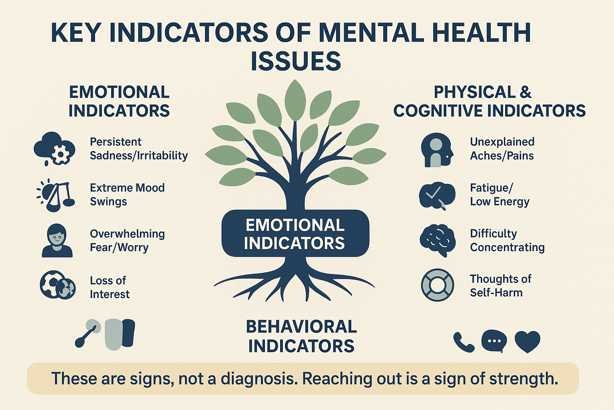Mental health is often debated in terms of its impact on overall well-being. In Lahore, Pakistan, where cultural and societal expectations can heavily influence personal experiences, mental health is a critical yet often overlooked aspect of overall health.
I as a psychiatrist, always prioritize ensuring that psychiatric services are accessible and of the highest quality, especially when addressing common mental health disorders like depression and anxiety. I believe in promoting holistic mental health care by encouraging therapy sessions and cognitive behavioral therapy as essential tools for long-term emotional well-being. I make sure that every project I work on emphasizes the importance of mental health and its impact on overall wellness, particularly in cities like Lahore where awareness is growing.
Best Psychiatrist In Lahore
In Lahore, individuals seeking specialized psychiatric care for mental health conditions such as depression, anxiety, and bipolar disorder have access to a growing network of expert providers. A psychiatrist in Lahore typically offers treatment for depression through cognitive behavioral therapy (CBT), which is recognized as an evidence-based modality for managing mood disorders. CBT is often complemented by pharmacological support, especially in moderate to severe cases. For anxiety-related conditions, certified therapists incorporate exposure therapy and mindfulness-based interventions, both of which are standard components of anxiety treatment plans.
Psychiatrist Role for Bi-polar Disorders
Patients diagnosed with bipolar disorder benefit from structured mood stabilization programs and long-term psychiatric monitoring, which are essential for managing manic and depressive episodes. These services are delivered by board-certified psychiatrists, many of whom specialize in adult and adolescent psychiatry. Additionally, platforms like Sehat Kahani enable telepsychiatry, allowing patients to consult remotely with licensed professionals, thereby expanding access to care across Lahore.
The Mental Toll of Economic and Global Turmoil in Pakistan
Mental health is a growing concern in Pakistan, impacting millions of people across the country. Recent reports show that nearly 80 million Pakistanis suffer from some form of mental health disorder. Economic issues like inflation, unemployment, and the rising cost of living are major contributors to these problems. These financial pressures lead to widespread anxiety and depression, affecting people of all ages and backgrounds(SAMAA).
The mental health crisis is particularly severe among the youth, with over 60% of college and university students experiencing high levels of stress. The lack of job opportunities and uncertain futures are key reasons behind this alarming statistic, said president of Pakistan. (President.gov.pk).
The Ministry of National Health Services has acknowledged the need for better mental health support systems. There are ongoing discussions about improving access to counseling, increasing the number of mental health professionals, and launching awareness campaigns to reduce the stigma associated with mental illness(President.gov.pk). Initiatives such as the ‘Hamraz’ app, which offers mental health support, are part of the government’s strategy to provide accessible care.
International events also play a role in exacerbating mental health issues in Pakistan. For example, the violence in Palestine has been linked to rising stress and trauma levels among Pakistanis who are emotionally affected by the conflict.
Key Indicators of Mental Health Issues

Feeling Sad or Down
In Lahore’s bustling environment, persistent sadness or feelings of emptiness can be significant. These feelings go beyond a temporary low mood and can affect one’s daily life and work performance. Recognizing and addressing these feelings is essential for improving mental well-being.
Confused Thinking or Reduced Ability to Concentrate
With the fast-paced lifestyle in Lahore, struggling with concentration and confused thinking can be especially challenging. These symptoms may impact productivity at work or school and overall quality of life in this vibrant city.
Excessive Fears or Worries, Extreme Feelings of Guilt
In a city like Lahore, where social and cultural pressures are high, feeling overwhelmed by fears or guilt can be particularly intense. These extreme emotions might be linked to anxiety or depression, affecting daily interactions and self-esteem.
I have seen firsthand the effects of economic stress on the mental health of my patients, particularly the younger generation who are struggling to find stability.
Extreme Mood Changes
Extreme mood swings in Lahore might be mistaken for normal fluctuations in a city known for its busy and sometimes stressful environment. However, these changes could indicate mood disorders, such as bipolar disorder, which require professional attention.
Withdrawal from Friends and Activities
Avoiding social interactions and losing interest in previously enjoyed activities can be signs of mental health issues. In Lahore’s close-knit communities, social withdrawal can intensify feelings of isolation and sadness.
As a psychiatrist, I advocate for increased mental health services and awareness in Pakistan, where millions suffer in silence due to the stigma surrounding mental illness.
Significant Tiredness, Low Energy, or Problems Sleeping
Chronic fatigue and sleep issues can affect anyone, especially in Lahore’s demanding work and social environments. These disturbances not only disrupt daily life but also contribute to a cycle of worsening mental health.
Finding Mental Health Solutions In Lahore
There are many best Clinics and Wellness Centers in lahore. You can find here Mental Health Clinics in Lahore informative guides from private practices to hospital-affiliated centers, Lahore has a robust network of mental health providers.
Trust Lahore Mental Wellness Centers offer holistic wellness support that combine psychiatry with yoga, mindfulness, and nutrition.
The Interconnection of Mental and Physical Health
The launch of apps like ‘Hamraz‘ is a step in the right direction, but more resources are needed to provide counseling and support for those battling mental health challenges.
Early Intervention and Support
In Lahore, recognizing and addressing mental health issues early can prevent more severe problems. Access to effective treatments, such as therapy and medication, can help manage symptoms and enhance life quality in this vibrant city.
Prioritizing mental health is not just a personal responsibility, but a societal need. Whether through therapy, psychiatric care, or community support, taking steps toward better mental well-being can lead to a healthier, more balanced life. As awareness continues to grow in cities like Lahore, it’s crucial to seek the right support and understand the vital role mental health plays in our overall quality of life.